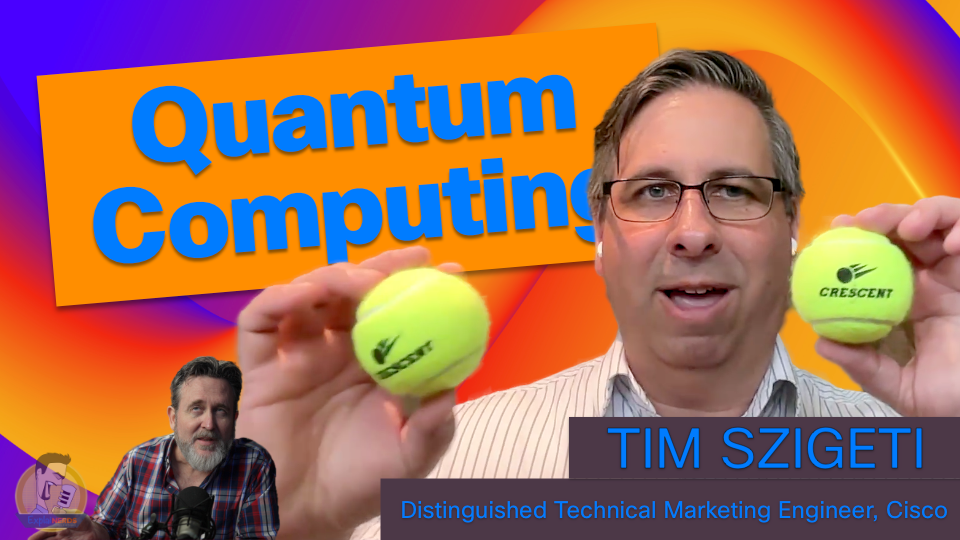Quantum Computing with Cisco's Tim Szigeti
Tim Szigeti shares how quantum computing differs fundamentally from classical computing, emphasizing unique properties like superposition and entanglement. Tim highlighted the impact of quantum on cryptography, showcasing the dual nature of quantum as both a threat and a savior for data security.

I don't know how many times I've reached out to ask Tim to walk me through a new subject. Jimmy Ray and I caught on to Tim's technical storytelling many years ago as he appeared on TechWiseTV multiple times.
Watch the entire show on YouTube: Quantum Computing with Cisco's Tim Szigeti
In this episode, we sit down with Tim Szigeti, a pioneering figure in tech, to discuss the cutting-edge world of quantum computing. Starting from Tim's journey from early networking technologies to leading innovations at Cisco, we delve deep into the transformative potential of quantum computing, its implications for cybersecurity, cryptography, and beyond. Tim breaks down complex concepts like entanglement and quantum speedup, providing insights into Cisco's role in developing quantum networks. Join us for an enlightening conversation on the future of technology and the innovations shaping it.
> See Tim's full Cisco Live Las Vegas presentation on-demand: An Introduction to Quantum Mechanics, Computing, and Networking - BRKETI-1401
A few takeaways:
- Quantum mechanics is the physics applied to subatomic particles within atoms. At this scale, the rules of classical physics break down and particles exhibit unique properties like superposition and entanglement.
- Quantum computers leverage these quantum phenomena to perform certain computations exponentially faster than classical computers. This is called "quantum speedup" and has huge potential for fields like cryptography, optimization problems, and molecule simulation.
- However, not all algorithms benefit from quantum speedup. Shor's algorithm for factoring large numbers and Grover's search algorithm are two well-known examples that demonstrate significant speedups.
- Quantum networking is crucial for connecting quantum computers and enabling distributed quantum computing. But it requires new approaches since quantum information cannot be copied or amplified like classical data.
- Techniques like entanglement swapping and teleportation allow transmitting quantum information over long distances without physically sending the particles. This overcomes the distance limitations of transporting single photons.
- Cisco is actively researching quantum networking, with the goal of producing a quantum switch in the near future. They have already developed a quantum random number generator for truly random encryption keys.
- While quantum computers pose a threat to current encryption methods, post-quantum cryptography is an active area of research to develop quantum-resistant algorithms that can be implemented on existing hardware.
The field of quantum computing and networking is still in its early stages, but advancing rapidly. As Tim notes, it requires a fundamentally different way of thinking compared to classical computing. But the potential benefits - from unbreakable encryption to accelerated drug discovery - are immense.
Quantum may very well be the next great technological leap, akin to the transition from vacuum tubes to transistors and integrated circuits. Companies like Cisco are already preparing for this quantum future. For those interested in learning more, a patient and persistent approach is recommended, as the concepts can be challenging at first. But the effort will be well worth it to anyone wanting to stay at the forefront of this exciting technological revolution.

